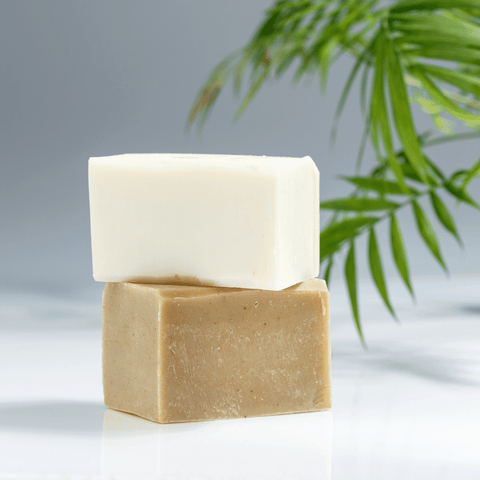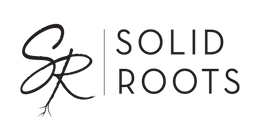Upping Your Dish Soap Game (plus Plastic Free July!)

Key Takeaways:
- Solid dish soap is a great way to reduce single-use plastic in your kitchen.
- Liquid dish soap has its place, too. Look for creative packaging solutions, like cardboard cartons or powdered versions that get mixed with water.
- You can find out more ways to swap out single-use plastics by joining the Plastic Free July Movement!
Some might say I have an obsession with all things solid. Some may be right.
Can you blame me? Using products in a solid form instead of liquid products typically packaged in a plastic bottle is a great way to cut down on our contributions to the global plastic pollution problem that we’re currently facing. These products function just as well or better than their liquid counterparts and oftentimes have the added benefit of using safer ingredients and being more fun to use (ahem...like Solid Roots’ shampoo and conditioner bars!).
Solid dish soap is one such product that I swapped in when working towards making our home greener. Solid dish soap is exactly what it sounds like - dish soap in a bar form. You can find it online by googling “solid dish soap” or “dishwashing block”. It’s super easy to use and typically lasts longer than a bottle of dish soap. Just grab a wet washcloth or scrubbing brush (preferably something made from a sustainable material like bamboo), and rub it over the bar to create a lather. Wash dishes as usual. As a bonus, most of the companies focused on solid dish soaps care deeply about our Earth and their products come packaged in easily recyclable or compostable paper or cardboard.
Given all the benefits of solid dish soap, however, there still may be a place in your kitchen for liquid dish soap. Liquid products may do a better job of cutting through the tough grime caused by cooking with oils or fats. Plus, for dishes that have been in contact with raw meat that might transfer harmful bacteria, liquid might be the better choice to reduce the potential of cross-contaminating your solid dish soap.
If you do decide to use a liquid, there are plenty of zero-waste options out there with very creative packaging. I’ve seen them come in cardboard cartons (think milk cartons), others that come with a sustainable bottle that you mix powdered soap with water to create a liquid product, and others that start as a concentrated solid that you add boiling water to and let dissolve. I went down the rabbit hole of googling zero waste household products and was amazed at the creative solutions that many brands are coming up with. It gives me hope for the future!
Another movement that’s boosting my optimism is a whole month dedicated to reducing or completely eliminating our reliance on plastic which starts in July! This observance, known as Plastic Free July, is run by an organization that helps millions of people worldwide be part of the solution to plastic pollution by pledging to find alternatives to plastic. Throughout the month of July, they support participants who sign up through a simple email registration on their website with weekly tips and tricks to help stay motivated during the challenge. The hope is that many of these swaps will stick and become lifelong habits.
Solid Roots has signed up! Will you join us in the Plastic Free July Challenge?
